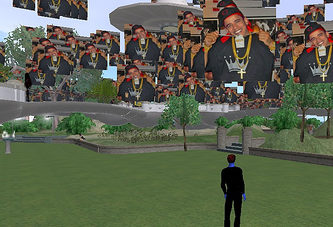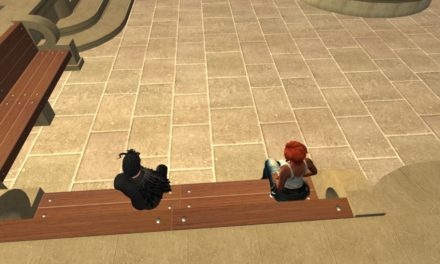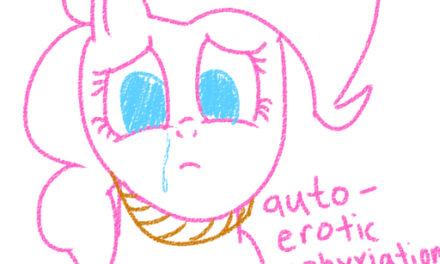
HEY HEARTUN – I’ve noticed an increased dissonance over the years, people’s intolerance towards others on the Internet has grown. Whether it be intolerance against sexuality, choice of avatar or just the way someone else presents themselves on SL. I’m wondering if they are just getting braver because they have such a high level of anonymity, or is it something else?
Maybe people have just forgotten how to behave. Respect seems to have vanished since the introduction of the Internet and peoples ability to excoriate others and leave anonymous comments, whether it be in a chat room or in the comments section in response to something posted.
As with most things, it happens incrementally. Each successive incident is slightly nastier than anything that previously went before, thereby increasing the nastiness baseline in small degrees that unfortunately then becomes accepted as the new norm I’m positive that if the anonymity was removed, a lot of the intolerance would disappear, as people would then be able to be held responsible and would fear reprisals.
I also feel that the victims of this cyber bullying would fare much better should they refrain from posting their daily life out there for all to read. ~ CIVILITY
DEAR CIVILITY ~ I don’t have a pat answer, and because of the complexity of society — I could be wrong on much (or all) of this, but here’s my best.
We are seeing a business model failure of communication.
Don’t get me wrong. Communication doesn’t stop all horrible conflicts, or a melting down of society. Jeffersonian principles of a free exchange of ideas, with the ‘cream rising to the top’ did not prevent the U.S. Civil War. But what we are seeing today is NOT the 1850 U.S. Senate war of words between Senators Henry Clay of Kentucky and Daniel Webster of Massachusetts over the institution of slavery.
Online communities have had griefers from the early days of BBS’s, and Second Life is no different. But today that griefer could have a Twitch channel and a huge following on Reddit and 8kun. And if they don’t, they follow someone who does, and are served up more and more like-minded content by the media channels they use. This results in an echo chamber of deepening distrust, where opposing world views are not just wrong — they are espoused by ‘the enemy.’ Where shadow ‘though leaders’ like those in QAnon undermine all institutions of authority. Simultaneously, they spin a web of misinformation to support a world view of social conflict of epic proportions — all from the comfort of anonymity.
Where’s the economics in this?
It’s in the news media. 1800 newspapers have folded since 2000. The ones that are still (somewhat) alive have eliminated half of their reporter jobs since 2008. Combined newsroom employment in the other four news-producing industries – broadcast television, radio, cable and digital-native – remained relatively stable, even rising modestly after 2014, but that blip in no way made up for the massive loss of print reporter jobs. Also, during that time, reporters from all media outlets have increasingly been tasked with spending their time as publishers of social media content — arguably lowering the quality and quantity of their actual reporting.
“But, Heartun, we see more and more news everywhere!”
Yes, and no. All actual news starts with a reporter of some kind: even a citizen journalist covering a town hall has to be a warm body in a building, or pick up a phone, or talk to someone. Their article may then get repurposed by editors, bloggers, meme makers, social media curators — and show up in a million locations. Talking heads on cable, or YouTube, may talk ABOUT that reporting, making it seem that this story is being reported on by a whole lot of people. But there was only one reporter. One story. Repurposed, and rebranded, and talked about — with each Tweet and twist validating the importance of the story, to the exclusion of other things that are just not reported at all. And unlike the huge expense of hiring a network of reporters to find out what’s going on, talking about news is very profitable.
It’s an economic crisis of communication.
Nobody is paying for news, so the industry is cutting overhead and selling its audience in ways that the ink-and-paper world could not have imagined. Sound like a conspiracy? It would be, except you can read all about it in reports filed with the Securities and Exchange Commission’s EDGAR database from the news media’s largest public companies. (see 10Q, New York Times Co.)
Second Life has always been a lie.
There is no second life, we only have one life. Spending time in Second Life is largely make-believe, but the people behind the avies have feelings — and those are real. Some get a sense of power and self-worth by preying upon those they consider weak. There are likely more of them today, because there are likely more of them in the ‘real’ world.
I don’t know what lies ahead for our increasingly complicated and divisive society, and if I had an idea of how to change the economic model to support straightforward reporting, and an actual free exchange of ideas, I would be a billionaire. But I like to think that I know people, and at their core, people have not changed since we figured out fire. The circumstances and technologies around us, and how we interact with each other, may change for a while — but no tragedy lasts forever. This, too, shall pass. There will eventually be a return to a greater degree of… civility. ~ HEARTUN BREAKER








Recent Comments